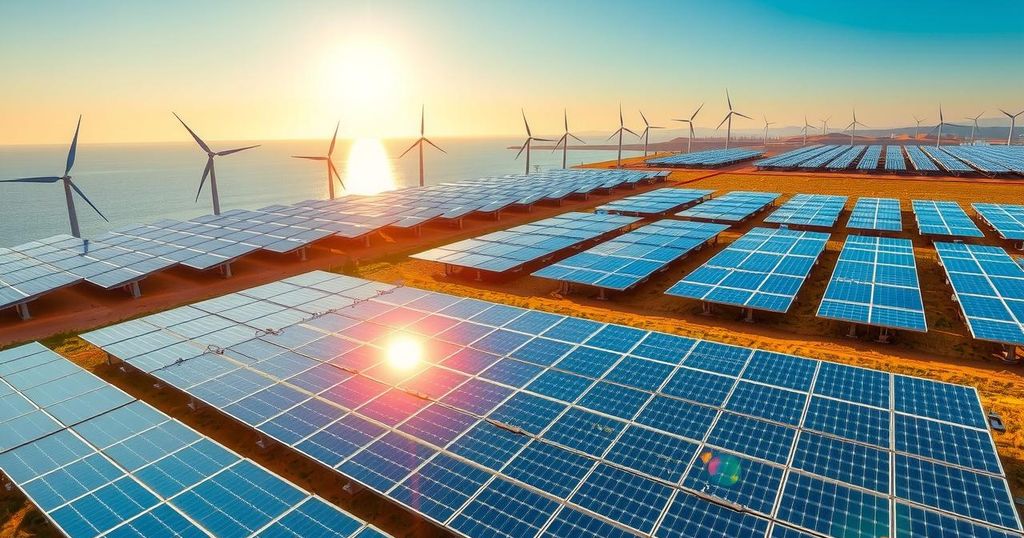Climate change
ANTONIO GUTERRES, ASIA, CHINA, COTTBUS, COTTBUSER OSTSEE, ENERGY, ENVIRONMENTAL POLICY, EUROPE, FRANCE, GERMANY, GLOBAL WARMING, GREENHOUSE GAS EMISSIONS, INTERNATIONAL RENEWABLE ENERGY AGENCY, IRENA, MATTHIAS SCHRADER, MEXICO, NG HAN GUAN, NORTH AMERICA, OSTSEE, RENEWABLE ENERGY, SHANDONG, SIMON STIELL, UNITED KINGDOM, UNITED NATIONS, UNITED STATES, WASHINGTON, WEIFANG
Isaac Bennett
0 Comments
Record High Renewable Energy Growth Fueled by China’s Solar Expansion
In 2024, renewable energy installations reached new heights, with China contributing 64% of the new capacity. IRENA reports a 15.1% growth overall, yet the pace is insufficient to meet 2030 goals. UN officials emphasize the importance of accelerating this shift to sustain environmental and economic benefits.
In 2024, the installation of renewable energy reached unprecedented levels, with 92.5% of new electricity from solar, wind, and other clean sources, according to the International Renewable Energy Agency (IRENA). China accounted for nearly 64% of this new renewable capacity, contributing significantly to the global increase of 585 billion watts, representing a 15.1% growth from the previous year. Notably, solar energy sources comprised 46% of the world’s total electrical output.
Despite these promising statistics, the current growth rate of renewable energy falls short of the international goal established to triple renewable energy capacity from 2023 to 2030. IRENA projects that the world is set to be 28% behind the necessary pace to meet this target, which aims to mitigate climate change impacts and reduce reliance on fossil fuels.
United Nations Secretary-General Antonio Guterres remarked on the transformative potential of renewable energy, stating, “Renewable energy is powering down the fossil fuel age. Record-breaking growth is creating jobs, lowering energy bills and cleaning our air. But the shift to clean energy must be faster and fairer.”
China’s contribution to renewable energy was particularly remarkable, adding almost 374 billion watts in 2024, primarily from solar technology—more than eight times the output from the United States and five times that of Europe. Presently, China boasts nearly 887 billion watts of solar energy, dwarfing figures from Europe and North America.
Amid these advancements, Simon Stiell, the United Nations climate chief, urged European and industrialized nations to enhance their climate leadership in light of changing dynamics, referencing former U.S. President Trump’s climate policies. He expressed that the clean energy transition could serve as a substantial economic catalyst for Europe, which is crucial for sustaining future living standards.
Neil Grant, a senior policy analyst at Climate Analytics, emphasized that with more robust climate policies, growth in renewable energy could potentially accelerate even further, stating, “If in 2024 renewables grew 15%, think how much faster they could grow with the full backing of comprehensive, credible and ambitious climate policies around the world.”
The surge in renewable energy installations signals a promising global shift towards sustainable sources, predominantly led by China’s rapid expansion in solar capacity. However, current growth rates are insufficient to meet international climate targets, necessitating stronger commitments from industrialized nations. The transition to clean energy stands as both a crucial environmental imperative and an economic opportunity, underscoring the need for comprehensive climate policies globally.
Original Source: apnews.com




Post Comment